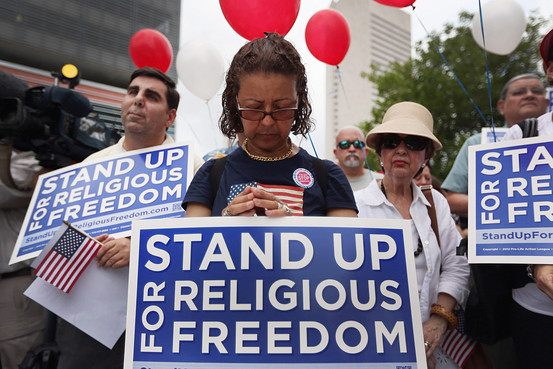
Yesterday, an evangelical college joined one of the most prominent Catholic colleges in America in filing suit against HHS. In this morning’s Wall Street Journal, the presidents of the two schools published an opinion piece explaining why:
On Wednesday, represented by the Becket Fund for Religious Liberty, the trustees of Wheaton College joined The Catholic University of America in filing a lawsuit against the Department of Health and Human Services. They did so because the HHS mandate requiring the college to provide and subsidize insurance coverage for abortion-inducing drugs violates the conscience of the school and its members, and denies their First Amendment freedom of religion.
When Catholic University began its own legal action on May 21, it asserted a moral and a constitutional right to practice its religion without government interference. Defending liberty is also deeply rooted in Wheaton’s identity as a Christian liberal arts college, founded by abolitionists on the Illinois prairie at the outset of the Civil War.
Wheaton’s first president, Jonathan Blanchard, believed that slavery was something more than an “ordinary political problem.” He felt a religious imperative to act in defense of freedom. “A command against my conscience,” he said, “I would not obey.”
Our institutions do not agree on all points about HHS’s mandated services. The regulations require religious institutions (except churches) to guarantee coverage for all government-approved contraceptives. Wheaton College does not, as Catholics do, view all forms of artificial contraception as immoral.
But the list of required services includes “morning after” and “week after” pills that claim the life of an unborn child within days of its conception. During the period for public comment, Wheaton and many other evangelical colleges and universities objected that this requirement violated their belief in the sanctity of human life.
We must cherish life, not destroy it. This belief is shared by both campus communities. The Catholic Church’s unqualified defense of the unborn is too well known to need restatement. Wheaton’s commitment is equally firm.











